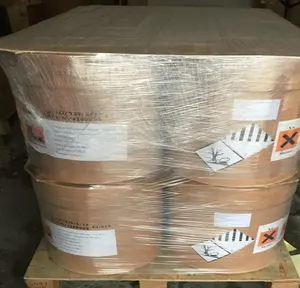Dibutyl Phthalate (DOP): An Overview
Dibutyl phthalate (DOP) is a colorless, odorless liquid that belongs to the phthalate family of compounds. Widely used as a plasticizer, DOP enhances the flexibility, transparency, durability, and longevity of various plastics, making it a crucial ingredient in the manufacturing of several industrial and consumer products. Its non-volatile nature and ability to dissolve in many organic solvents further contribute to its prominence in different applications. As industries continue to evolve, the importance of understanding dibutyl phthalate and its diverse uses cannot be underestimated.
Types of Dibutyl Phthalate (DOP)
Dibutyl phthalate is primarily classified based on its purity and formulation, leading to different applications across several industries. The following are common types:
- Technical Grade DOP: This is the standard form used in most industrial applications, featuring a mix of various purity levels.
- High-Purity DOP: Designed for applications requiring maximum efficacy and minimal impurities, often used in sensitive environments such as pharmaceuticals.
- Specialty DOP Formulations: Tailored compositions for specific applications in industries such as textiles, cosmetics, and adhesives, where unique properties are required.
Applications of Dibutyl Phthalate (DOP)
The versatility of dibutyl phthalate allows it to be applied in various sectors, enhancing product performance and characteristics. Key applications include:
- Plastic Industry: Its primary role in polyvinyl chloride (PVC) production improves flexibility, making products like flooring, pipes, and wire insulation more durable.
- Cosmetics: DOP serves as an emulsifier and solvent in the formulation of creams and nail polishes, contributing to texture and application efficiency.
- Aerospace and Automotive: Used in manufacturing coatings and elastomers due to its ability to resist UV exposure and solvents, enhancing component durability.
- Textiles: DOP acts as a softener and plasticizer in various fabrics, improving their flow and feel, making them more appealing to consumers.
Features and Advantages of Dibutyl Phthalate (DOP)
Dibutyl phthalate offers several beneficial features that make it a preferred choice for manufacturers and formulators:
- High Solvency Power: DOP effectively mixes with many organic compounds, allowing for versatile formulations across different industries.
- Enhances Flexibility: By reducing the glass transition temperature of materials, DOP substantially increases flexibility and workability.
- Thermal Stability: DOP demonstrates excellent resistance to heat and oxidation, promoting longevity and performance of the products it is incorporated into.
- Low Volatility: Its minimal tendency to evaporate ensures that formulations maintain their integrity over time.
- Cost-Effectiveness: DOP is often more affordable than alternative plasticizers, making it an economically viable choice for manufacturers.







































